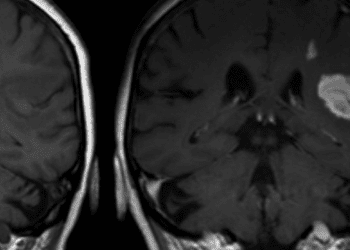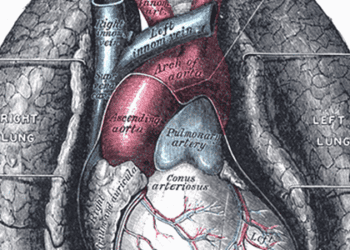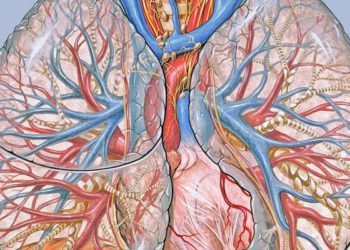Amikacin prevents ventilator-associated pneumonia in mechanically ventilated patients
1. In this randomized controlled trial, rates of ventilator-associated pneumonia (VAP) were lower in ventilated patients using amikacin as compared to a placebo.
2. This difference was maintained over a 28-day follow-up period in the amikacin group.
Evidence Rating Level: 1 (Excellent)
Study Rundown: VAP emerges 48 hours or more post-mechanical ventilation via an endotracheal tube or tracheostomy, contributing to escalated antimicrobial usage, resistance, prolonged intensive care unit (ICU) stays, and heightened mortality. The peak incidence surfaces after seven days of ventilation, offering a therapeutic window for mitigating VAP occurrence. A meta-analysis of nine trials with modest sample sizes demonstrated efficacy in VAP prevention. The Inhaled Amikacin vs. Placebo to Prevent VAP (AMIKINHAL) trial scrutinized the prophylactic potential of inhaled amikacin in reducing VAP incidence among critically ill adults ventilated for at least 72 hours. The multicenter, double-blind, randomized trial demonstrated a significant reduction in VAP occurrence in the amikacin group compared to the placebo group over a 28-day follow-up. Moreover, infection-related ventilator-associated complications were substantially lower in the amikacin group. As a limitation, this study was underpowered to assess mortality or duration of stay in the ICU. Overall, the trial posits that a subsequent three-day course of inhaled amikacin may effectively alleviate the burden of VAP in such patients.
Click here to read the study in NEJM
In-Depth [randomized controlled trial]: The study enrolled 850 participants from 19 ICUs in France, with 417 in the amikacin group after three patients withdrew consent and 430 in the placebo group. Patients were randomly assigned to receive either nebulized amikacin or nebulized sodium chloride, with blinding of treating physicians and participants. At randomization, 78% of patients were receiving systemic antibiotics. In the amikacin group, 337 patients (81%) completed all three scheduled nebulizations, while in the sodium chloride group, 335 patients (83%) completed all three scheduled nebulizations. The primary outcome was the development of VAP post-nebulization, with key secondary outcomes including length of stay, deaths, median days on mechanical ventilation, ventilator-associated events, and antibiotic days. At 28 days, ventilator-associated pneumonia had manifested in 62 patients (15%) in the amikacin group and 95 patients (22%) in the placebo group (difference in restricted mean survival time to ventilator-associated pneumonia, 1.5 days; 95% confidence interval [CI], 0.6 to 2.5; p=0.004). Furthermore, an infection-related ventilator-associated complication occurred in 74 patients (18%) in the amikacin group and 111 patients (26%) in the placebo group (hazard ratio, 0.66; 95% CI, 0.50 to 0.89). Trial-related serious adverse effects were observed in 7 patients (1.7%) in the amikacin group and four patients (0.9%) in the placebo group. This investigator-initiated trial provides invaluable insights into the potential preventive use of inhaled antibiotics in critically ill patients.
Image: PD
©2024 2 Minute Medicine, Inc. All rights reserved. No works may be reproduced without expressed written consent from 2 Minute Medicine, Inc. Inquire about licensing here. No article should be construed as medical advice and is not intended as such by the authors or by 2 Minute Medicine, Inc.







